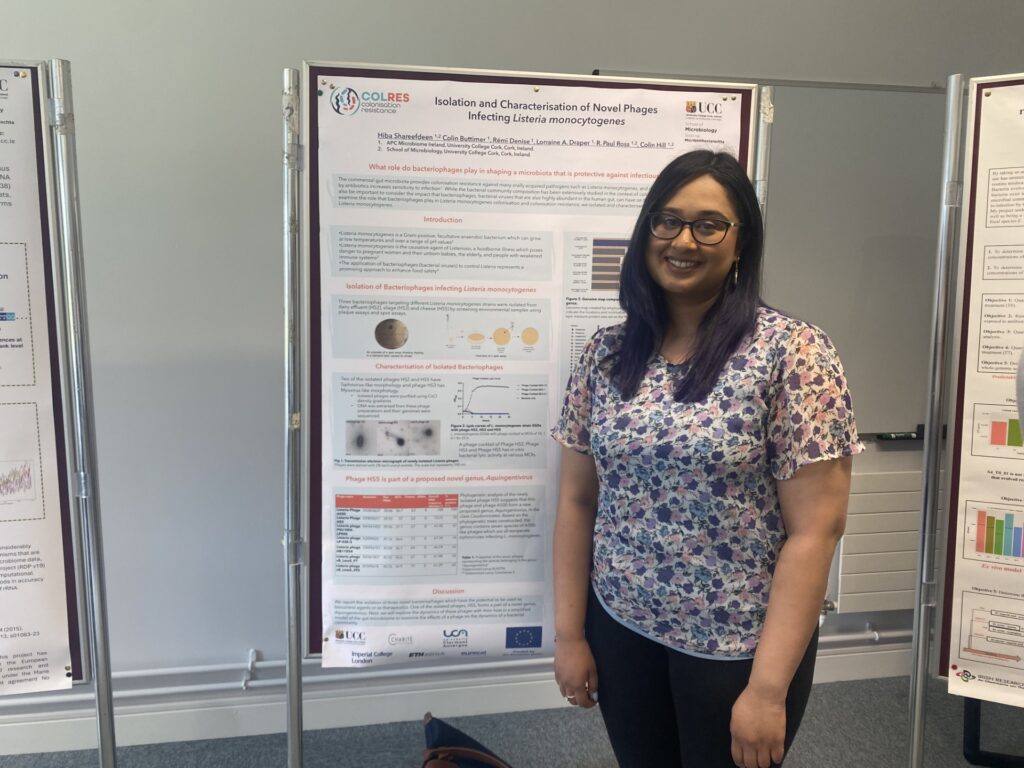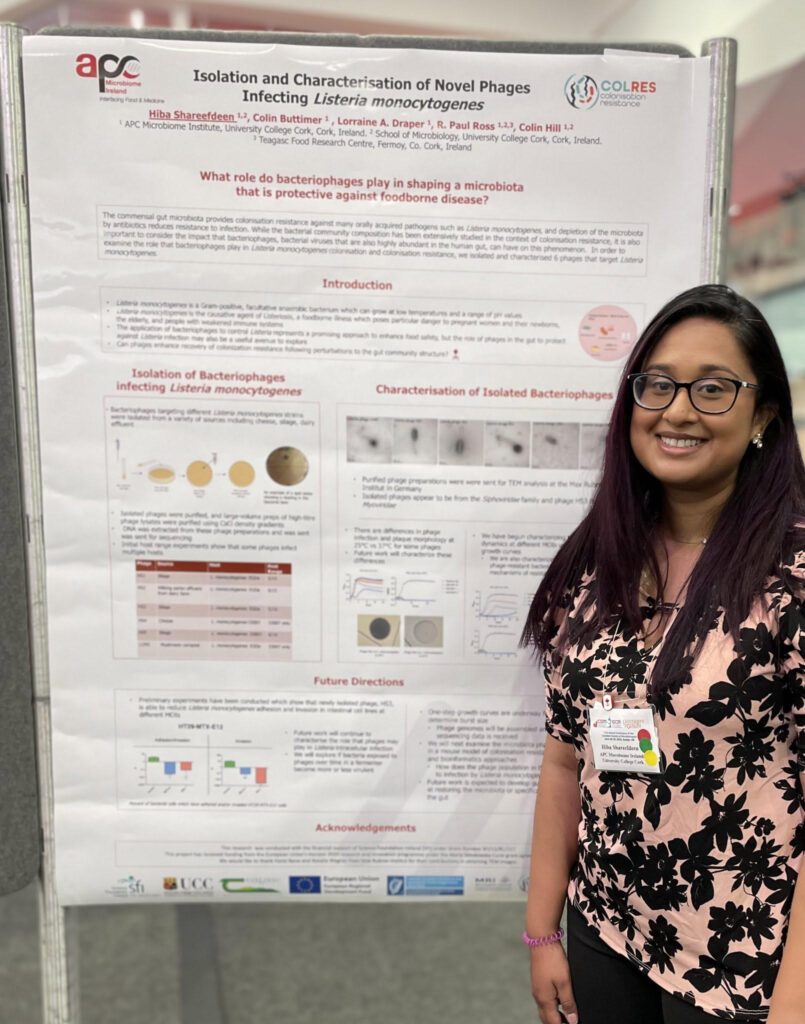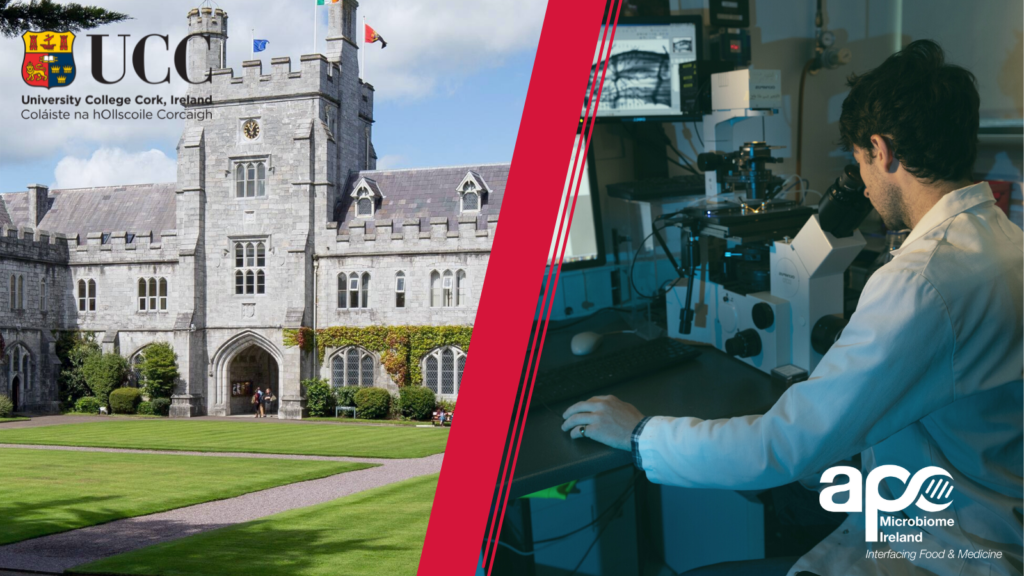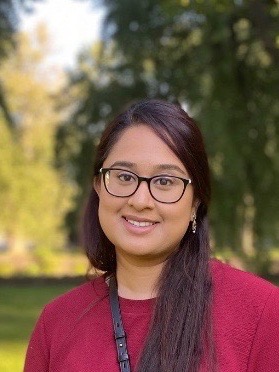
Previous training and experience
I completed my Honours Bachelor of Science in Biochemistry at McMaster University where I worked for two years in the lab of Dr. Michael Surette. At the Surette lab, I worked on the isolation of bacteriophages from the human gut microbiota. After falling in love with phages, I decided to continue my studies in the field by obtaining a MSc under the supervision of Dr. Alexander Hynes. At the Hynes lab I was involved with a study that tracked phage populations through fecal microbiota transplants and worked on a separate project studying novel hemolysis phenotypes in Bacteroides isolates. Most recently, I worked as Research Technician in the Cox lab at the University of Guelph where I studied cell wall-anchored proteins in Staphylococcus aureus.
Why you wanted to join the project
I have always been interested in studying the role that bacteriophages play in the gut microbiome. I wanted to join this project because it provides the opportunity to further elucidate the mechanisms by which bacteriophages influence bacterial community structure in the gut. I am passionate about studying phages and the ways that they can be leveraged as therapeutics.
About your research project
This project will look at the microbiota phage community structure using sequencing and bioinformatics approaches. I hope to examine phage populations in murine models before and after antibiotic treatment and determine the influence of phage populations in the context of protection against Listeria and Salmonella infection.
Other Interests
My interests outside of the lab include reading novels (especially fantasy), trying new recipes and new cuisines, and growing really spicy peppers in my garden.
Contact details: HShareefdeen@ucc.ie
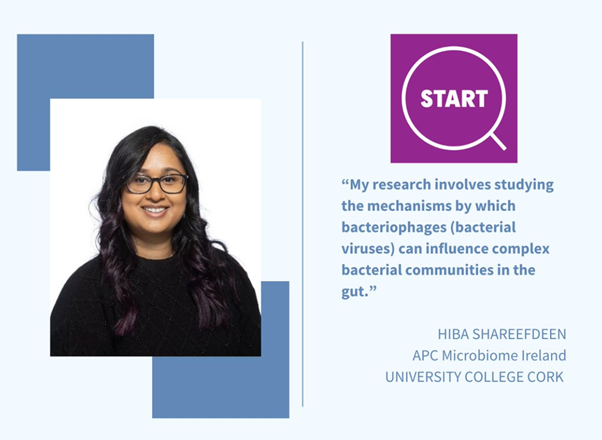
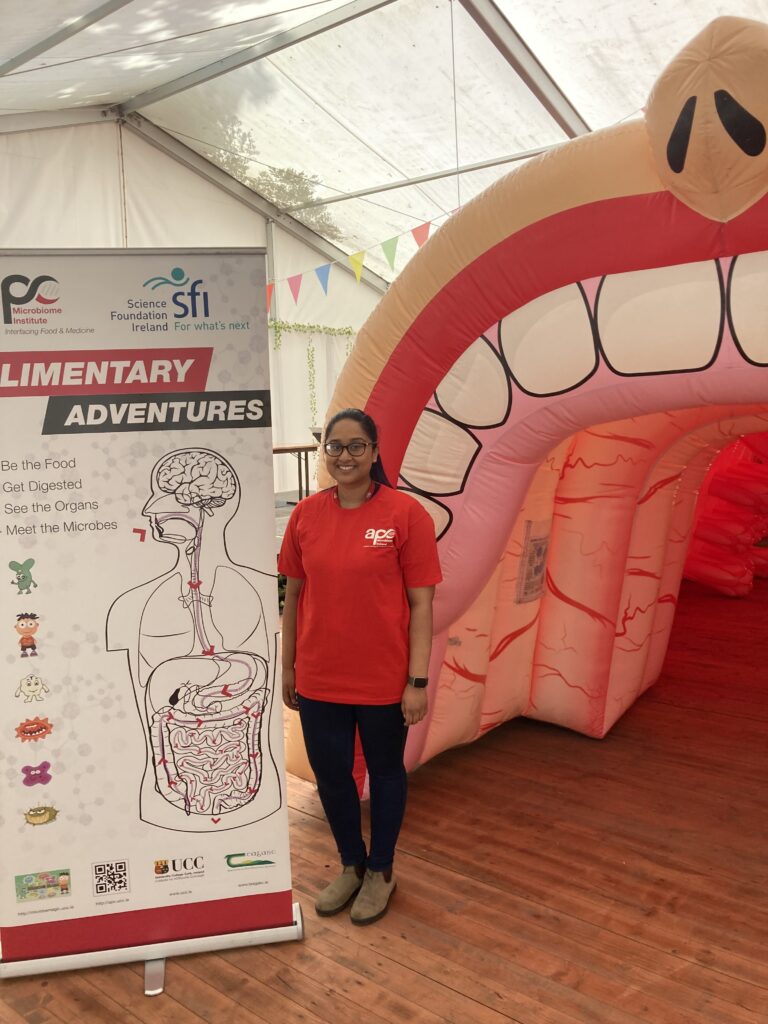
Alimentary Adventures Inflatable Gut EPE activity
The activity uses an inflatable gut to promote science to children and introduce children to gut health and the microbiome. Hiba went to Fota wildlife park in Cork in August 2023, where she was a guide/presenter at the event. There were approximately 50 visitors that included mainly schoolchildren. She explained the process of digestion using the inflatable gut model. She walked the groups through the gut and talked about the different components of the digestive system.
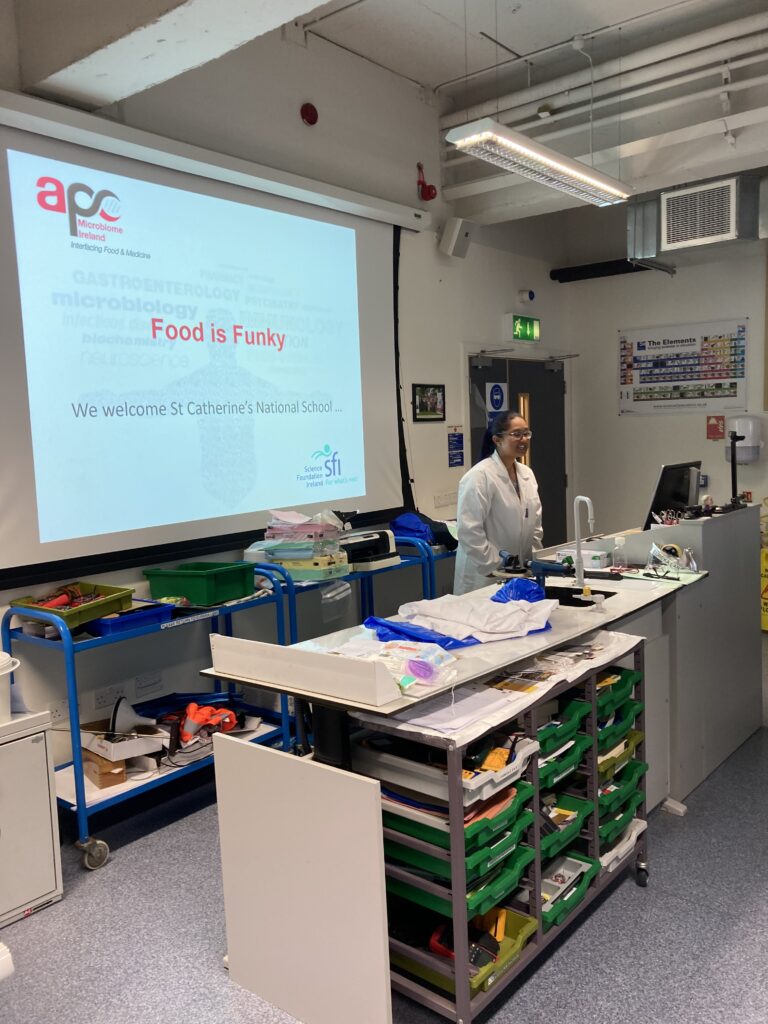
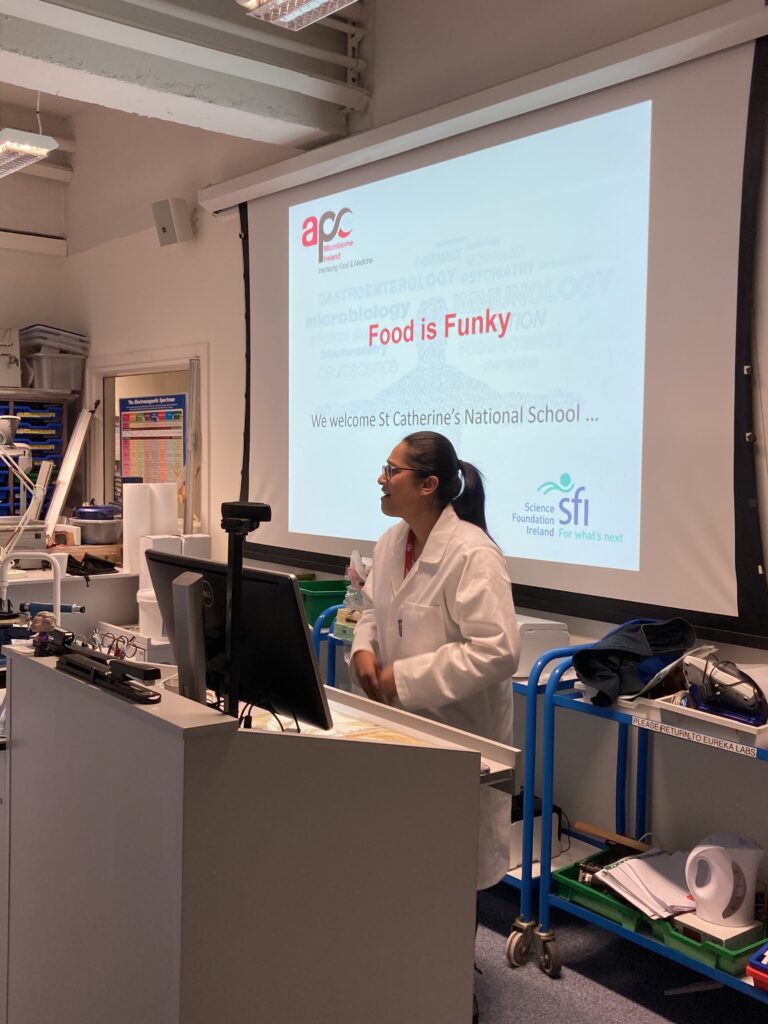
Food is Funky EPE activity for primary school children who were invited to visit us in a lab setting. Here is Hiba chatting to them about how digestion works.
Well done to Hiba who got involved with the Teachers in residence programme at CURAM, Feb. 24th, 2024.
This was a collaboration between the APC and CURAM. As part of the APC educational program CURAM invited one of our COL_RES researchers to prepare and deliver a talk about the microbiome and their research. Hiba got involved with this EPE activity and worked with a group of 3-4 primary and secondary teachers to develop a lesson plan about gut microbiome research. First, she had an informal chat with the teachers about research. Then, she had a brainstorming session with the teachers on ideas for hands-on activities and lessons that could be used to teach their students about the gut microbiota. In the following months, the teachers shared the activities with their students, hence promoting the microbiome in classrooms
Dissemination of Research
